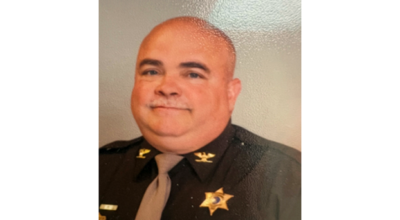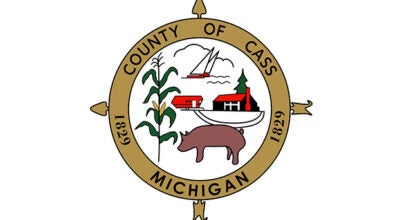Road commission delivers report to commissioners
Published 8:00 am Tuesday, May 10, 2016
According to Chairman Pete Fournier, when the Cass County Road Commission set out to find a new operational head for the county agency in early 2014, he and his fellow road commissioners weren’t content with just dusting off a couple applications that listed “engineering manager” in the title.
Instead, faced with an reductions in funding and staffing and an ever growing number of governmental regulations and resentment from locals upset about ongoing problems with local roadways, the commissioners sought to look outside the usual list of candidates to find someone experienced in handling the operations of a public agency while at the same time able to address the concerns of the people, Fournier said.
The result of their search — hiring Steve Lucas, who was then the director of operations with the Three Rivers School District. The commissioners tasked Lucas with a number of goals, meant to improve the operations of the agency in this new era, Fournier said,
“We wanted him to enhance the value of the Cass County Road Commission to the community and reverse the negative perceptions,” Fournier said.
In the two years since his hire as director, Lucas has implemented a number of new procedures to how the road commission fixes and maintains the county’s miles of roadways, which he and Fournier shared with the members of the Cass County Board of Commissioners during the board’s meeting last week in Cassopolis.
“I think we would all agree that the road commission is definitely a customer service based organization,” Lucas said. “We have a lot of customers in the county depending on the road commission for safe roads to travel, whether that’s in the winter or the summer.”
The biggest change that Lucas brought to the operations of the commission was introducing written processes and procedures for nearly action the agency takes, be it how road repair work is performed to how the agency produces asphalt from its production facility, he said. A lot of these processes were developed based on feedback from crews on how they have handled these jobs for years, he said.
“I have three principals that I work with,” Lucas said. “I believe if you provide the training, the right equipment and the right process for each thing you do, you have a lot better chance for success, and you have a lot better chance to have that success be continuous,” Lucas said.
The agency now uses a calendar to keep the leaders and crews accountable for meeting deadlines for steps for every project it is responsible for, with each step given its own set of responsibilities and deadlines, Lucas said.
The agency has also made changes to the way it handles snow plowing, perhaps its most important responsibility, in response to a smaller employee base. Among those changes are building mandatory overtime for snow removal and development of turn-by-turn directions for each of the 24 routes that drivers use during the winter.
“The idea is to go out, plow that route the same way every time,” Lucas said. “As you become more familiar with that, you become more effective with it because it just becomes second nature to you.”






